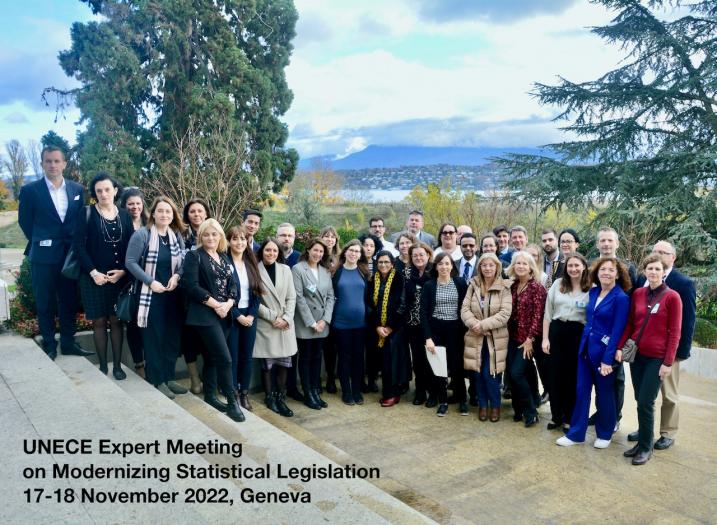The 3rd UNECE Expert Meeting on Modernizing Statistical Legislation took place on 17-18 November 2022 in Geneva.
Improving the governance of statistical production and the legal framework is fundamental to producing high-quality statistics and a priority for many countries. The Conference of European Statisticians (CES) has been supporting its members in this area by developing and endorsing, together with the European Free Trade Association (EFTA) and Eurostat, the Generic Law on Official Statistics (2016) and Guidance on Modernizing Statistical Legislation (2019).
The Expert Meeting provides a platform for national and international experts to share experience and best practices in the modernization of legal and institutional frameworks of official statistics and discuss emerging issues posing legal challenges to national statistical systems.
All documents related to the previous Expert Meetings can be found under the following links: 2020 Expert Meeting and 2021 Expert Meeting.
